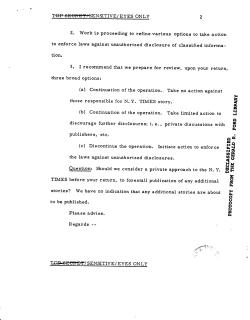Dick Cheney and Don Rumsfeld must despise and I mean really, truly, despise Seymour Hersh, the journalist whose New Yorker exposé of the sadistic conditions at the Abu Ghraib prison has rocked the world.
Hersh has been a thorn in the side of the U.S. government since 1969, when he was the first journalist to report on the atrocities of My Lai, where the Charley Company of the U.S. Army massacred every man, woman, and child of a small South Vietnamese village. All told, nearly 500 civilians were shot dead that morning of March 16, 1968.
Hersh continued his investigative work in the seventies. In a front page New York Times article on May 25, 1975, Hersh reported that the U.S. Navy was running extremely risky nuclear submarine missions inside Soviet waters. Not only did these missions threaten the detente of the thawing Cold War, they had resulted in several accidents, including at least two direct collisions with Soviet submarines. You can bet the hawks in the White House were outraged by Hersh and his revelations. 
In fact, several memos passed between Cheney and Secretary of Defense Rumsfeld, in which they considered their options. (To the left is the second page of one of these memos, dated May 30, 1975. Click for a larger version.)
Should they sue the Times for publishing government secrets? Should they pressure the press through “private discussions with publishers, etc.”? Should they investigate the origin of the leak and prosecute that person? And most importantly to Cheney and Rumsfeld, should they continue the hazardous submarine operations?
The language Cheney uses in this memo bleeds with euphemism. Exactly what is the “etc.” that follows “private discussions”? An offer the newspaper can’t refuse? And what “action” is Cheney proposing they take “against those responsible for N.Y. TIMES story”?
I wish I could say I’m surprised that nearly 30 years later, similar secret shenanigans by the same secretive hooligans are taking place within the halls of power. But I’m not surprised, and I would even be disappointed if Cheney and Rumsfeld weren’t abusing the power of their offices. I’m not even surprised at their hypocrisy in wanting to “enforce laws against unauthorized disclosure of classified information,” when the current Bush administration most certainly illegally leaked classified information, like the name of a CIA operative in order to exact revenge on that agent’s husband, a vocal critic of the current war in Iraq.
I wonder what memos are flying around the White House now, especially after Hersh’s latest article in the New Yorker, in which he elaborates on his first exposé and describes how nearly everyone in the chain of command at the Department of Defense attempted to cover-up the abuses at Abu Ghraib. “Secrecy and wishful thinking,” Hersh relates, “are defining characteristics of Rumsfeld’s Pentagon.”
We are seeing evidence of that secrecy and wishful thinking every day now, and there seems to be no end in sight.